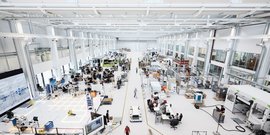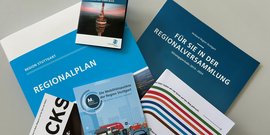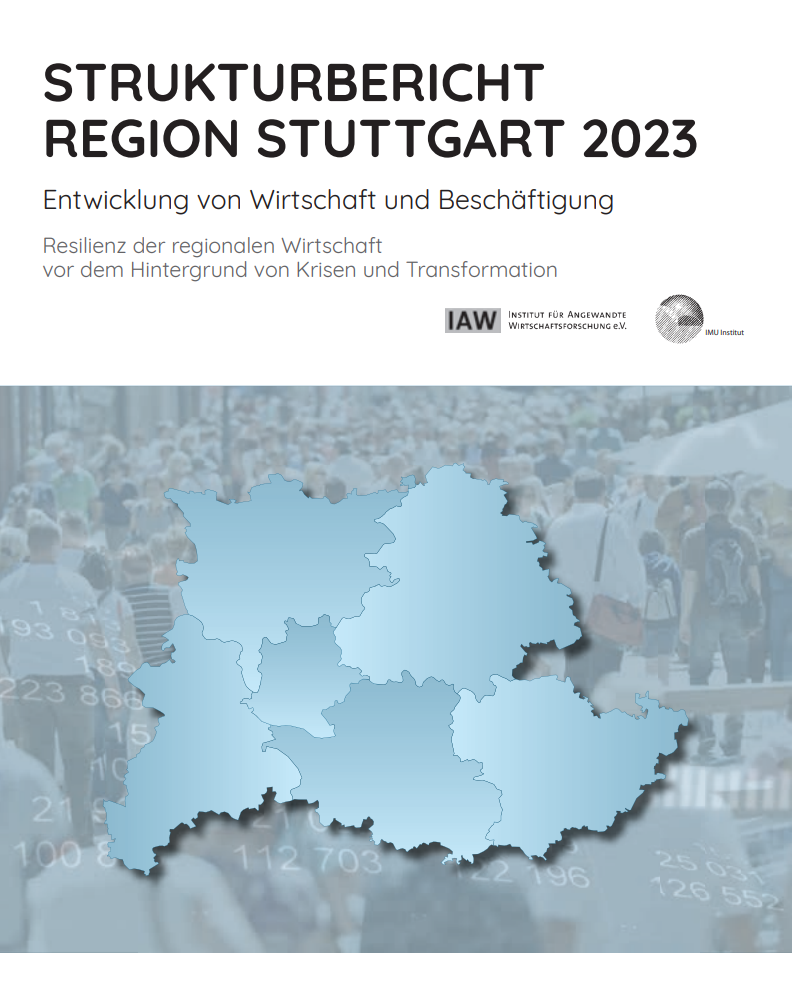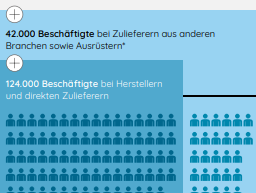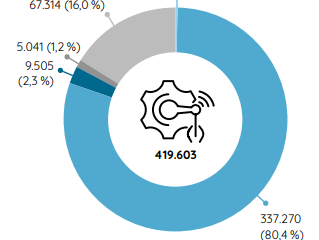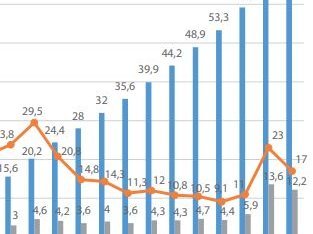The structural report for the Stuttgart region, a unique project in Germany by important regional organizations - Verband Region Stuttgart, Handwerkskammer Region Stuttgart, IG Metall Region Stuttgart and IHK Region Stuttgart - has been published for more than a quarter of a century. It analyzes structural developments in the economy and employment in the region. The project is driven by a shared sense of responsibility for the region with the aim of sustainably strengthening the business location, maintaining its competitiveness and future viability and thus securing employment and prosperity.
The coronavirus pandemic, the war on the eastern edge of Europe, disrupted supply chains and exploding energy prices - in other words, multiple crises - are also challenging the Stuttgart Region, whose economy is characterized by a strong service sector that is built around an industrial core. And yet: the Stuttgart Region is one of the strongest economic locations in Germany. To ensure that this remains the case in the future, the Structural Report 2023 looks at the region's resilience to such external events and its ability to adapt to structural change processes such as demographic, technological or ecological change.
The most important findings in a nutshell
Against the backdrop of the numerous crises of recent years, the current report primarily examines the factors that significantly influence the adaptability of the economy. These include the massive shortage of labor and skilled workers, the labor and training market, innovation, the development of commercial and residential space and infrastructure, as well as the urgent need to reduce bureaucracy.
Skills shortage as the biggest risk
According to the structural report, a lack of skilled workers is a key risk factor for the Stuttgart Region. This trend has been apparent for many years. A higher employment rate and a faster return to work for women after parental or care leave would be facilitated by better childcare and care services. Without immigration, the labor market will face a demographic shortage in the future.
Adjusting screw for training and further education
Lifelong learning is and will remain one of the most important factors for the labor market of the future. This also includes the acquisition of broad skills that already take into account the future requirements of work and business processes. The transition from school to work must be made easier. Weaker young people can be supported in their entry into working life, for example through an introductory qualification. It is also important to ensure the permeability and dovetailing of educational pathways, for example by offering vocational qualification opportunities for graduates who drop out of university to enter an apprenticeship or dual study program.
Leading as an innovation region
The Stuttgart Region is the leading innovation region in Baden-Württemberg and far beyond. A large part of this innovative strength comes from the private sector, especially the automotive industry and production technology. The region is well placed to invest in future technologies, for example in the areas of environment and energy, sustainable construction, AI and quantum technologies or medical technology. In these areas, existing initiatives and projects for companies, start-ups and employees need to be expanded and new ones added. The editors then see good opportunities for application possibilities and potential in new business areas and markets to be seized.
Land as a prerequisite for the region's resilience
The availability of space for housing and business is one of the central and decisive prerequisites for the resilience of the region. Without available living space, the attractiveness of the region as a place to work suffers despite good employment opportunities and the shortage of skilled workers cannot be eliminated. At the same time, companies in the region need development opportunities in the form of newly usable industrial and commercial space. These can also be created by restructuring existing commercial areas. The structural report clearly shows the economic structure of the region as a service economy around an industrial core. This results in corresponding requirements for location quality such as stable, affordable energy supply, mobility and space.
Bureaucratic burden increases relocations
In numerous interviews with experts, the bureaucratic burden was cited as a massive obstacle to investment in the location. In their recommendations for action, the editors of the structural report emphasize that this would reinforce the relocation tendencies of companies. Short-term opportunities would lie in making greater use of discretionary powers, for example in building law, or in dispensing with excessively narrow and detailed administrative regulations. In principle, laws should be reviewed more closely and more bindingly in terms of the burden they place on citizens and businesses. With the new appointment of the Baden-Württemberg Regulatory Control Council, there is an opportunity to identify bureaucratic burdens and combat them effectively if politicians play along.






![[Translate to English:] S-Bahn](/fileadmin/_processed_/3/d/csm_058_-_S-Bahn_Stuttgart_ho___ehengleicher_Einstieg-1-rwilling_ce82cb0b0e.jpg)

